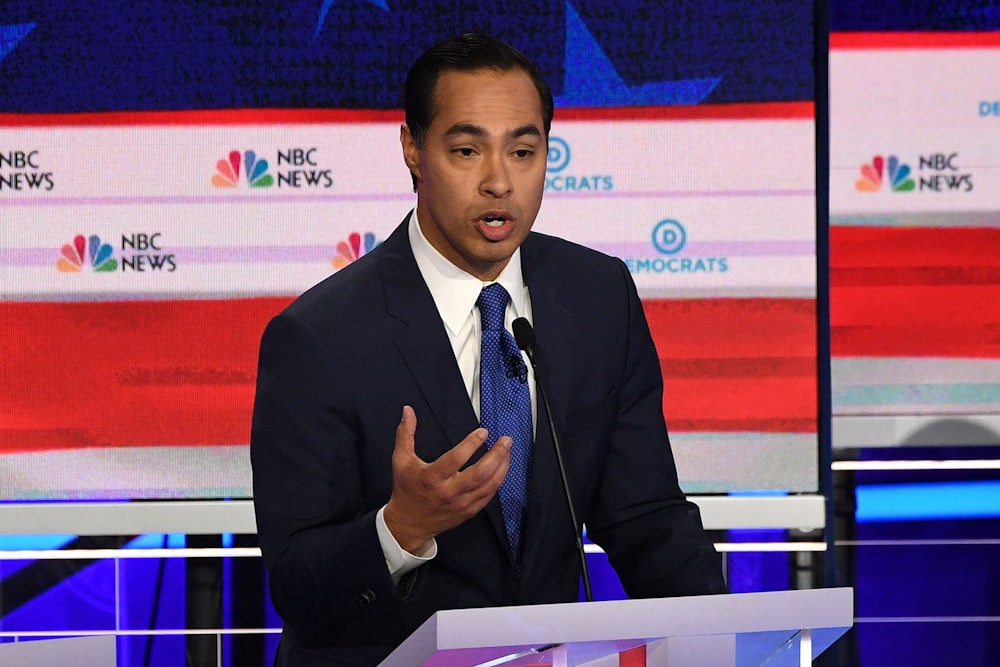If one word summed up Castro’s candidacy thus far, it would be “unlucky.” He was crowded out in the media by two other mayors, one a flavor of the month (Pete Buttigieg) and the other a favorite punching bag (Bill de Blasio). Despite putting out the most comprehensive immigration policy of any of the candidates, he was largely ignored, as much of the policy attention focused on other candidates, particularly Elizabeth Warren and Bernie Sanders. Thus far, he’s shown a knack for influencing the conversation—he was also notably the first candidate to endorse launching impeachment proceedings against President Trump—but hasn’t ever led it. (That’s also, partly, because he’s shown a wonky knack for crucial policies that will never receive substantial media play, like his recently released work on lead exposure.)
No candidate helped their position more than Castro in the first debate. He was certainly helped by its early focus on immigration, although he made the most of his time. Facing Beto O’Rourke, the only other Democrat with a substantial (or, at least, arguably substantial) immigration policy, Castro quickly contrasted their proposals, emphasizing O’Rourke’s failure to decriminalize undocumented border crossings.
Helpful debate between @JulianCastro and Beto, with Castro calling out Beto for not calling to end Section 1325 (which would decriminalize crossing the border without papers)
— Alexis Goldstein 🔥 (@alexisgoldstein) June 27, 2019
Read Castro's plan (which Warren has endorsed): https://t.co/5G4ieaMKc7#DemDebate pic.twitter.com/GKbWENZq2P
While Castro faded a bit on non-immigration issues—particularly on gun control, where he offered something more in line with sloganeering than policy—he was strong on issues like filibuster, climate change, and police reform. It was a reminder that Castro has been one of the policy leaders in the early stage of the Democratic primary. If people didn’t notice before, they will now.
